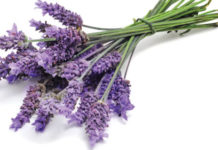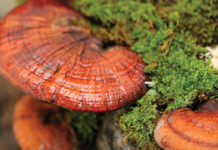
Leafy greens offer a powerful combination of vitamins and minerals, as well as phytonutrients that act as antioxidants, inflammation fighters, and overall health boosters. There are countless reasons to eat (and love!) your greens, but here are my top 10 reasons.
Top 10 reasons to eat your greens
1. Heart disease protection
Research in the journal Atherosclerosis found that vegetables with a high lutein content such as leafy greens have a potentially significant effect when it comes to reducing inflammation in heart disease patients.
2. Weight loss booster
If weight loss had a colour, it would surely be green. That’s because leafy greens are power-packed with nutrients that help maintain a healthy metabolism. They’re also low in calories but loaded with fibre, both important for weight management.
3. Male sexual health enhancer
Many leafy greens, and beet greens in particular, are good sources of the mineral zinc, low levels of which have been linked to poor sexual health in men.
4. Heart muscle aid
Leafy greens are among the best food sources of the mineral potassium, which is needed to regulate heartbeat and nerve signals. Eating more greens, such as Swiss chard, is a great way to increase our intake of this important nutrient.
5. Eye health enhancer
Leafy greens such as kale contain the carotenoids lutein and zeaxanthin, which are critical nutrients in maintaining eye health and vision, particularly in reducing risk of developing age-related macular degeneration and cataracts.
6. Osteoporosis protector
Because leafy greens are a rich source of critical bone-building nutrients such as calcium and magnesium, adding them to your diet may help protect against osteoporosis.
7. Cancer fighter
Leafy greens are packed with anticancer compounds, including carotenoids—antioxidants that protect cells—making them an excellent addition to your daily diet to help prevent, or aid in the treatment of, cancer.
8. Diabetes defender
Leafy greens are rich in dietary fibre, flavonoids, and antioxidant compounds, including carotenoids, vitamins C and E, as well as folate and potassium—all nutrients that have been shown to be protective against diabetes.
9. Liver helper
An animal study published in the medical journal Lipids in Health and Disease found that eating more leafy greens improved the liver’s fatty acid profile, which researchers believe points to their ability to help protect against cardiovascular disease.
10. Lymphatic system cleanser
Leafy greens contain many vital vitamins and minerals that boost the lymphatic system’s ability to keep our tissues clean and to help fight infection.
Tip: How to get more greens
Although you can drink matcha powder on its own in hot water, there are many great ways to incorporate it into your diet, as with moringa or spirulina powder. Some suggestions include adding to smoothies, baked goods, or entrées. Remember, these powders are concentrated, so a little goes a long way. Matcha brownies, spirulina cookies, or moringa muffins are great options to sneak more nutrients into your diet.
Great greens you should get to know
Although some of these great greens may be regular visitors to your dinner plate, others may be less familiar to you. Take it from us, though, they’re all more than worthy of your acquaintance!
1. Arugula
This peppery salad green, also known as rocket, is a nutrient powerhouse worthy of greater inclusion in your diet. Owing its signature spicy bite to its membership in the cabbage and mustard green family, arugula is a great source of antioxidants including vitamins A and K and glucosinolates (source of that peppery bite), which may protect against breast, prostate, lung, and colon cancers.
2. Beet greens
Frequently thrown away, beet greens are well worth keeping, and including in your diet. That’s because just 1 cup (250 mL) of boiled greens contains a whopping 580 percent of the average person’s daily vitamin K requirements, as well as 61 percent of vitamin A and 40 percent of vitamin C requirements.
3. Kale
Like other brassicas, kale is a potent anticancer food. In addition to providing 80 mcg of vitamin K, 49 mcg of vitamin A, and 19 mg of vitamin C in 1 cup (250 mL), kale is high in glucosinolates. These powerful anticancer compounds trigger antioxidant and anti-inflammatory responses that contribute to maintaining cell balance.
4. Matcha
Matcha powder is simply green tea in a convenient powdered form, making it perfect for drinking as you would green tea, using in iced teas or smoothies, or adding to baking for a flavour and nutrition blast. Like other forms of green tea, it contains epigallocatechin gallate (EGCG), a potent free-radical scavenger and possible anticancer compound.
5. Moringa
A deciduous tree native to the southern foothills of the Himalayas as well as parts of Africa, moringa is a rich source of phytosterols and healing phytonutrients, including the anticancer compounds glucosinolates and isothiocyanates. Moringa’s phenolic acid content gives the herb some of its anti-inflammatory, anticancer, and antidiabetic properties.
6. Spirulina
Spirulina, a type of blue-green algae, gets its rich colour from chlorophyll, the super-pigment that allows plants to absorb and metabolize light. Available in powder form, spirulina is rich in protein, copper, and iron, and also contains abundant antioxidants.
Because leafy greens are such powerhouses of nutrition, people regularly ask me which ones are the best ones to eat, to which I always respond: “The ones you actually eat.”
Tip: How to get your kids to eat more leafy greens
Of course, you can hide greens or green powders in smoothies, along with the baked treats mentioned earlier, but there are some other proven ways to get your kids to eat more leaves.
Traci Mann, psychology professor at the University of Minnesota, along with research associates, found that when vegetables were served first and on their own, vegetable consumption quadrupled.
Researchers at Texas A&M University found that aligning vegetables with foods that kids like but don’t love may be the answer. In their study, kids barely touched their vegetables when paired with favourite foods such as burgers or chicken nuggets, but they ate them when they were paired with less favoured entrées such as baked potatoes or deli sliders.
TIP: Green powders—another great
Life can be hectic at the best of times, so it can be difficult to eat enough healthy food to help us keep up with the pace. That’s where green powders can help. They are essentially multivitamin and mineral supplements packed in a convenient powder form, making them a perfect addition to smoothies or other foods. As an added bonus, green powders also contain plentiful amounts of disease-preventing and -fighting phytonutrients.
Dr. Michelle Schoffro Cook, PhD, DNM, RNCP, is an international best-selling and 21-time author whose books include 60 Seconds to Slim and The Cultured Cook. DrMichelleCook.com; instagram.com/drmichellecook; facebook.com/drschoffrocook; twitter.com/mschoffrocook
This article was originally published in the March 2020 issue of alive Canada, under the title “Bring on the Greens!”




































